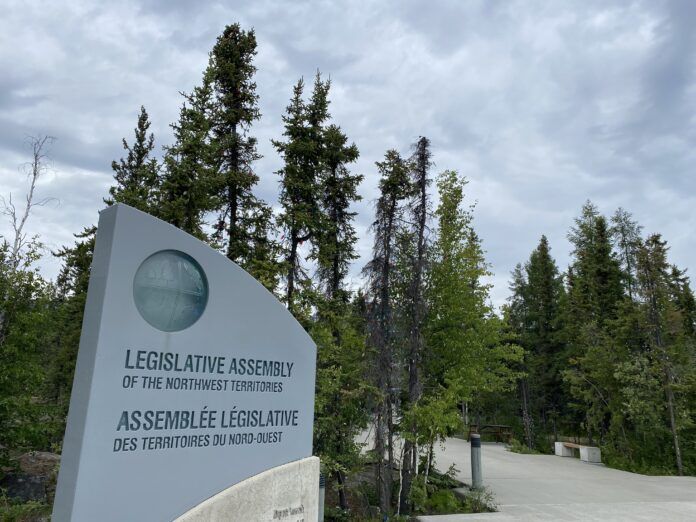In a meeting with the GNWT, ministers representing their respective departments gathered to discuss the ongoing wildfire situation outside Yellowknife.
ECC Minister Shane Thompson spoke on a variety of subjects including the recent announcement of a territory-wide state of emergency and the department of ECC’s priorities going forward.
“Right now, it’s looking at what our situation is, right now it is working with my cabinet colleagues, working with the City of Yellowknife like the Town of Fort Smith, Hay River, Jean Marie industry to see what needs to be done,” Thompson says.
“Right now we don’t see the need to enact anything per se, but because the wildfire situation changes so rapidly, it is [important] the ability to do things.”
“It’s not that we needed the resources right now, it’s needing the resources as the fire situation changes,” Thompson adds.
Several NWT residents have compared the Yellowknife blaze to the 2016 Fort McMurray fire and evacuation, NWT Fire Information Officer Mike Westwick spoke on the matter saying,
“We saw relative humidity at levels as low as like 12 to 15 per cent if I remember correctly in Fort McMurray, right now we’re seeing closer to 35 per cent or so on these days.”
“This doesn’t take away from the fact that this is a very serious situation and you can rest assured that our wildfire management team is not underestimating the potential threats here,” Westwick adds.
Additionally, Westwick spoke on the issues the Yellowknife/Behchokǫ̀ area has faced due to wildfires in the past, saying over-protection has resulted in stronger fires than ever before.
“It’s widely acknowledged in Canada that these sorts of suppress-at-all-costs measures have led to larger and more catastrophic fires in the times that we’re facing now,” Westwick says.
“There is very little fire history in the area, and as a result of that the built up fuel in the area means that those fires are burning hotter, they’re burning stronger, and they’re much more difficult to manage,” he adds.





